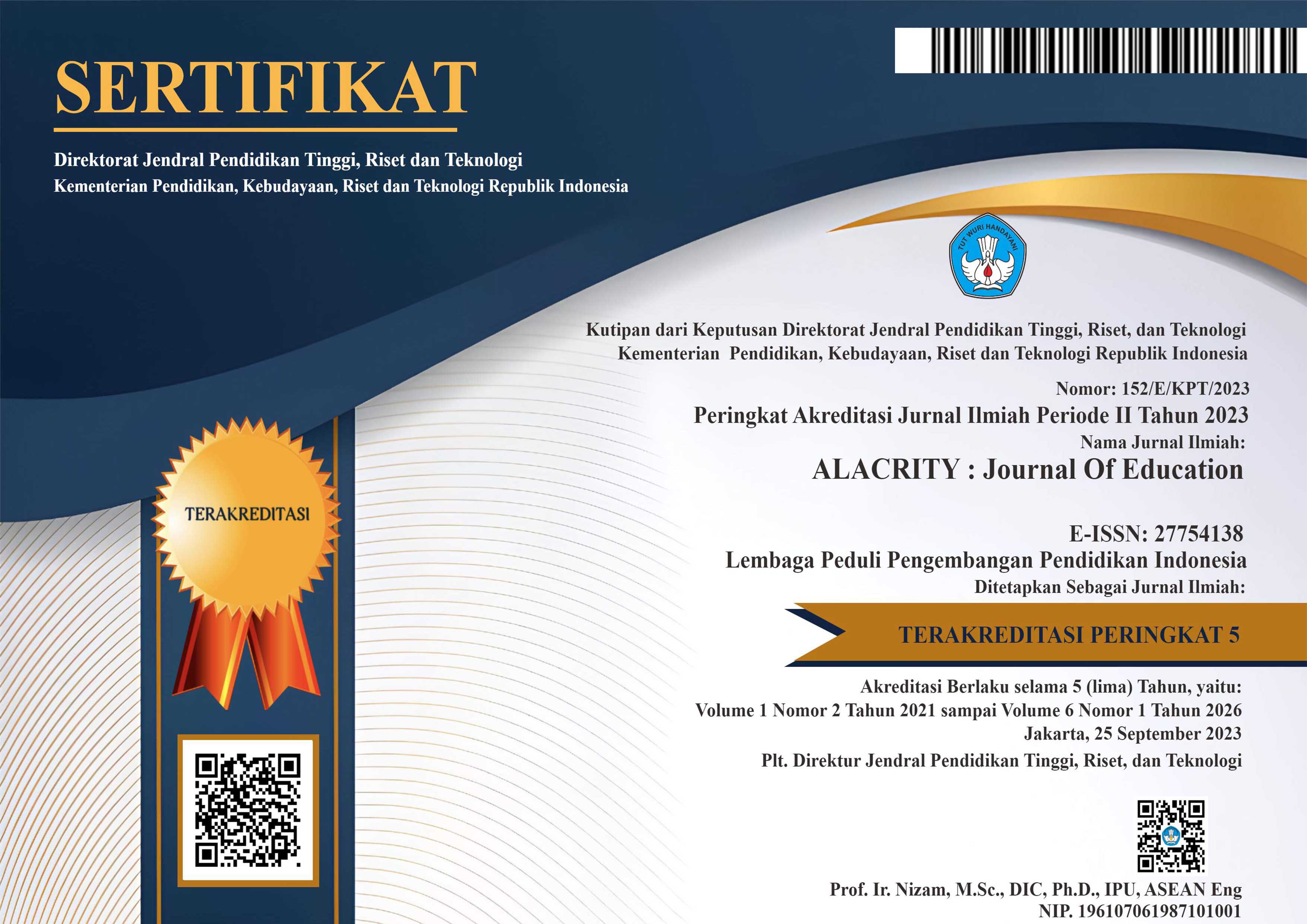Strategi Guru Pendidikan Agama Islam dalam Mengantisipasi Kekerasan Verbal Melalui Pendidikan Anti Bullying di Sekolah Menengah Atas Negeri 1 Sibabangun
DOI:
https://doi.org/10.52121/alacrity.v5i2.802Keywords:
Islamic Religious Education Teacher Strategy, Anticipating Verbal Violence, Anti-Bullying EducationAbstract
Many student problems often trigger bullying behavior, usually driven by the desire to gain attention or feel valued among peers. When students fail to find a supportive social circle, they may act out by mocking or disturbing others. Such behavior often appears as showing off, teasing, mischief, or unnecessary interruptions during lessons. Addressing these issues requires collaboration among homeroom teachers, BK (guidance counselors), Islamic Religious Education (PAI) teachers, and parents. However, this effort is not easy and needs continuous socialization and awareness programs involving both school staff and families. Bullying has wide-ranging effects, especially for victims who face increased risks of physical and mental health problems such as depression, anxiety, sleep disorders, and physical complaints like headaches and stomachaches. Victims may also lose motivation to learn and feel unsafe at school. This study used a qualitative method to explore social issues like bullying. Findings show that bullying is still prevalent among Indonesian high school students, largely due to poor parental attention and negative peer influence. Therefore, the role of teachers, especially PAI and BK teachers, is vital in providing consistent guidance and intervention to prevent and reduce bullying behavior within the school environment.
Downloads
Published
Issue
Section
License
Copyright (c) 2025 Mulatua Siregar, Zulhammi Zulhammi, Zainal Efendi Hasibuan

This work is licensed under a Creative Commons Attribution-ShareAlike 4.0 International License.













